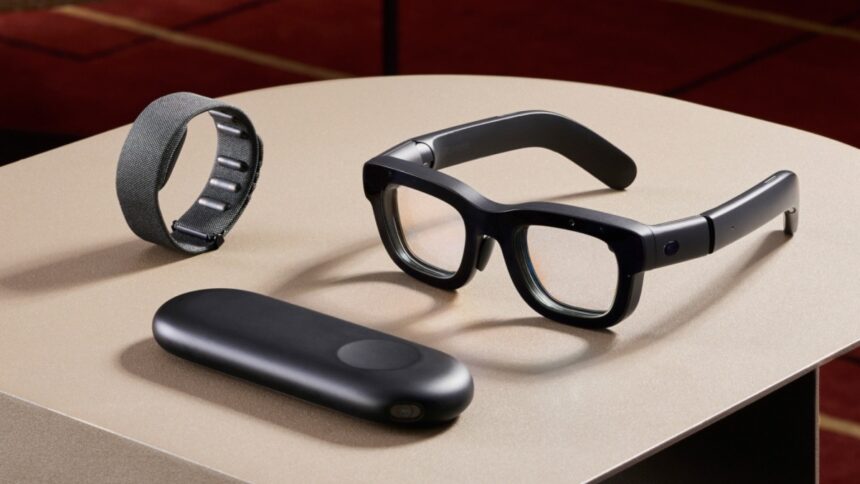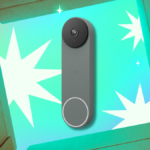The Future of Meta Smart Glasses: What’s on the Horizon?
Enthusiasts of smart eyewear, particularly the Meta Ray-Ban smart glasses, have been eagerly scanning for updates and hints regarding upcoming advancements. Recent announcements surrounding Meta’s collaboration with Oakley have sparked interest; these new glasses, available for preorder, promise a battery life boost and enhanced camera functionality, yet they seem to fall more into an incremental upgrade rather than a complete generational leap. Let’s explore the most compelling leaks, educated speculation, and imaginative dreams for the next iteration of Meta smart glasses.
Meta is pursuing two distinct paths in its smart glasses line: audio-centric models developed in partnerships with recognized eyewear brands like Ray-Ban and Oakley, and a more sophisticated approach to augmented reality (AR). Below, insights regarding both categories have been compiled.
Orion: The Prototype AR Smart Glasses from Meta
Let’s focus on the ambitious project: Orion. Officially revealed in September 2024, Orion represents Meta’s groundbreaking effort to merge augmented reality and artificial intelligence into a comfortable eyewear solution. The aim is to seamlessly connect the physical and digital realms, and if the showcased demos are any indication, Orion could stand as a legitimate contender against traditional smartphones.
However, achieving this is no small feat. Given the current advancements in consumer AR technology, there are significant challenges to overcome before something like Orion becomes accessible, affordable, and available in stores. While journalists have had the opportunity to experience these glasses, plans for public release in their current design remain uncertain:
The potential applications of Orion are intriguing. Imagine needing guidance to your gate in an airport, with a visual directive to follow, or working on a design in 3D and having the capacity to inspect its underside. Yet, it has significant expectations to meet, particularly as eyeglasses have maintained their design largely unchanged since the 13th Century. Once the novelty factor fades, will the advantages Orion offers outweigh the technological inconveniences?
Adoption hinges on simplicity. Current Meta Ray-Bans require minimal effort to use—simply charge them in their case and wear them. For Orion to gain widespread acceptance rather than be seen solely as a tech gadget, usability must be equivalent. At present, Meta envisions managing the glasses with a smart wristband worn constantly. Nevertheless, it may be several years before “true” AR glasses become commonplace, while Meta’s Hypernova smart glasses reportedly loom on the immediate horizon.
Upcoming: Meta’s Hypernova Smart Glasses
Speculations suggest a new pair of Meta smart glasses featuring a display could be imminent. Rumors indicate that these “Hypernova” glasses might be released by the end of this year, incorporating all the functionalities of the existing Ray-Ban Metas but with the added benefit of an app interface and display capabilities projected onto one lens. The glasses are also expected to come equipped with a “neural” wristband for gesture navigation akin to what has been presented in Orion’s demonstrations. Anticipated pricing is estimated to be between $1,000 and $1,500.
Though unconfirmed, this theory carries weight. Hypernova appears to serve as a logical intermediary between the aspirational concept of Orion and the current Ray-Ban Meta models. The technical barriers to these glasses’ production are minimal; HUD-style AR glasses with virtual displays, like the XReal Pro, have been in circulation for a few years. Meta’s progress hinges primarily on strategic business decisions regarding their rollout.
It’s believed that a small heads-up display on a comfortable eyeglass frame would provide greater utility and less friction than an advanced option like Orion, similar to how text messaging might be less cumbersome than a video call. A significant concern may revolve around battery longevity; the existing Ray-Ban Meta feature has been criticized for being heavy with inadequate battery life. Adding a display could exacerbate these issues. If Meta can enhance battery performance while ensuring ease of use comparable to the Ray-Ban Metas, there would be enthusiasm for such a product.
Prospects for the Next Generation of Ray-Ban Meta Smart Glasses
Shifting from grand visions of a phone-less future and speculative video capabilities, it’s pertinent to address the trajectory of the existing AI and audio-centric Meta smart glasses in the near future.
Recently, images of the anticipated next-generation Ray-Bans surfaced online. While skepticism exists regarding these images—since anyone can create a mock-up—the reported features accompanying them seem likely and logical. Specifically, the upcoming version is expected to feature improved battery life and enhanced AI functionalities, including real-time object recognition and scene understanding, akin to the straightforward prediction that a new iPhone will boast superior camera technology.
A particularly intriguing rumor arose from tech outlet The Information, suggesting that the next iteration of glasses may incorporate facial recognition technology. There are no significant technical barriers preventing Meta from implementing this feature. Supposedly, it was originally intended for the current generation but was removed due to privacy concerns. Understandably, privacy advocates may raise alarms, but for individuals who occasionally forget names, this feature could be quite appealing.
In a somewhat unsettling advancement, it’s claimed that Meta is exploring the idea of enabling its next line of glasses to monitor and analyze user interactions continuously. With the AI actively observing, it could provide reminders like, “You parked in spot 6G” or “You left the garage door open.”
For individuals with attention difficulties, this concept holds significant utility. While concerns about ceding cognitive responsibilities to a machine are valid, the initial moment those glasses assist in finding misplaced keys would likely eclipse any reservations.












